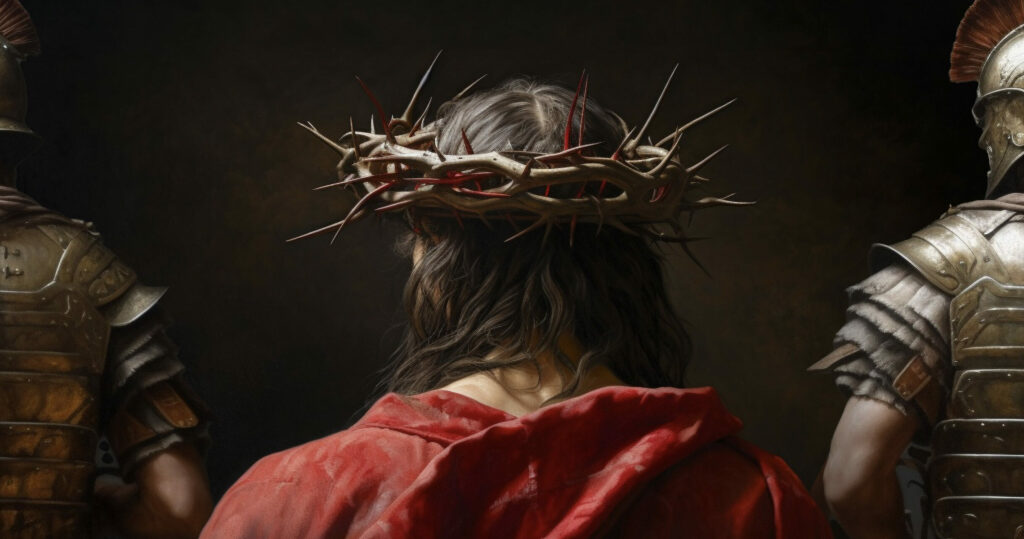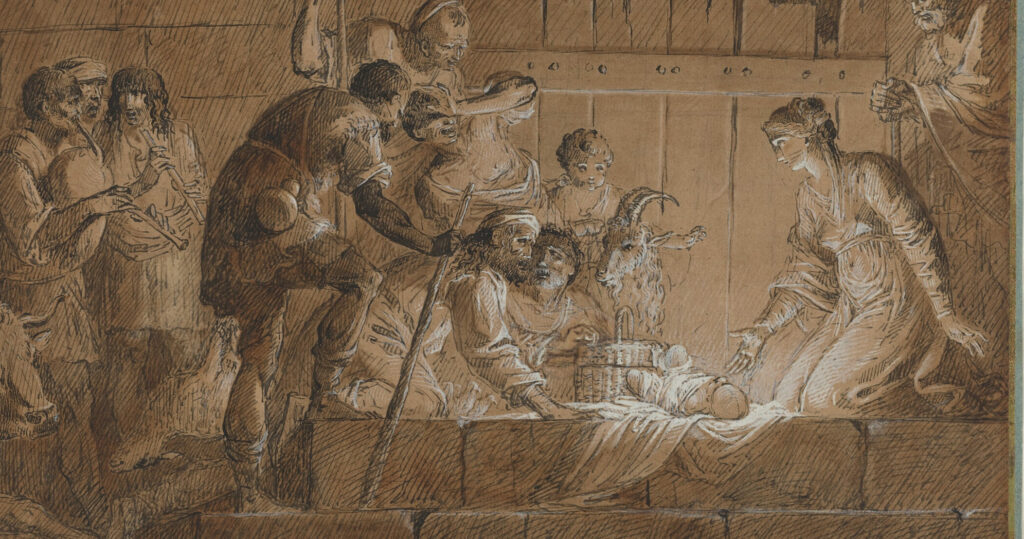by Matthew C. Harrison
Paul confronted numerous problems in his mission congregation in Corinth. He’d spent a year and a half with them after founding the congregation in A.D. 51. Despite all his time there, a host of challenges erupted. That’s comforting, knowing that even with apostolic leadership things went awry. No surprise when we have challenges. He wrote to them barely four years later in the spring of A.D. 55.
In his letter, Paul chastises them for divisions in Corinth. They were lining up behind individuals they perceived were supporting their views.
For it has been reported to me by Chloe’s people that there is quarreling among you, my brothers. What I mean is that each one of you says, “I follow Paul,” or “I follow Apollos,” or “I follow Cephas,” or “I follow Christ.” Is Christ divided? Was Paul crucified for you? Or were you baptized in the name of Paul? (1 Cor. 1:11–13)
These divisions were serious indeed. Some were denying even the resurrection of the dead. Paul responded with the glorious resurrection chapter. “If Christ has not been raised, your faith is futile and you are still in your sins” (1 Cor. 15:17). Thank God we don’t have such serious problems.
Had the Apollos party come to despise those with a less eloquent or philosophical approach to the faith? Had the Cephas party insisted upon elements of the Jewish ceremonial laws as Peter had done, contrary to the Gospel? We’ll never know for sure. Paul responds, “Where is the one who is wise? Where is the scribe? Where is the debater of this age?” (1 Cor. 1:20). Could these be in order, the Christ party, the Cephas party and the Apollos party?
Paul hits them all and brings it back to basics. “Since … the world did not know God through wisdom, it pleased God through the folly of what we preach to save those who believe” (1 Cor. 1:21).
Make no mistake, the message of Christ’s crucifixion is complete folly to the world and has been ridiculed from the beginning. That God the Son assumed flesh, lived the perfect life no human could live, fulfilled all the righteous requirements of the law, died a substitutionary death for all sinners and all sin, was rejected and condemned by His own Father, was raised on the third day for the reconciliation and justification of all (2 Cor. 5:19; Rom. 4:25) is a scandal to faulty human reason. It offends every natural inclination of human self-righteousness. That the blessing of eternal righteousness, this justification, comes to benefit me personally only when the Spirit creates faith in this Christ and His cross is the height of absurdity and injustice to the natural, sinful human mind. “For with the heart one believes and is justified, and with the mouth one confesses and is saved. For the Scripture says, ‘Everyone who believes in him will not be put to shame’” (Rom. 10:10–11).
Paul also writes:
How then will they call on him in whom they have not believed? And how are they to believe in him of whom they have never heard? And how are they to hear without someone preaching? And how are they to preach unless they are sent? As it is written, “How beautiful are the feet of those who preach the good news!” (Rom. 10:14–15)
Paul is speaking here of ordained pastors and missionaries. But there is also a vital witness lay people perform in the course of their myriad vocations in life. Consider the woman at the well. She witnessed to her neighbors, and “many Samaritans from that town believed in him because of the woman’s testimony” (John 4:39). Our church follows the Scriptures (1 Peter 2:9) and joins Martin Luther in strongly asserting that Christ has “commanded all Christians to confess their faith publicly and to bring others to the faith” (WA 12:521.36f).
“Christ crucified” is the content of the message we proclaim. Just read Peter’s preaching in the early chapters of Acts:
Let it be known to all of you and to all the people of Israel that by the name of Jesus Christ of Nazareth, whom you crucified, whom God raised from the dead … This Jesus is the stone that was rejected by you, the builders, which has become the cornerstone. And there is salvation in no one else, for there is no other name under heaven given among men by which we must be saved. (Acts 4:10–12)
The crucifixion was a blood atonement that was made for the sins of the world. “The blood of Jesus [God’s] Son cleanses us from all sin” (1 John 1:7). It was a sacrifice “once for all,” says the writer of Hebrews. “He entered once for all into the holy places, not by means of the blood of goats and calves but by means of his own blood, thus securing an eternal redemption” (Heb. 9:12). Jesus calls His death a “ransom” (Mark 10:45). The New Testament often calls it a “redemption,” a purchase price, a buying back, the price of a slave’s freedom.
“The Crucified One” is a special grammatical construction. “Crucified” is in the perfect tense. It conveys that an action in the past is accomplished but the results of that action continue. Christ was crucified once, but He remains ever “the Crucified One.” Indeed, no resurrection, no Christianity. But note that after the resurrection, Christ presents Thomas His wounds and tells him to see and touch. Thomas responds: “My Lord and my God!” (John 20:28; emphasis added). The Crucified One is alive.
The deed is done. “It is finished!” said Jesus before He died. Paul taught that this crucifixion, like Christ who remains the Crucified One, puts this crucified reality right into believers’ lives. In Baptism, “I am crucified with Christ.” I daily return to my baptismal crucifixion via repentance. Like Jesus, I live daily with the cross. “We know that our old self was crucified with him in order that the body of sin might be brought to nothing, so that we would no longer be enslaved to sin” (Rom. 6:6).
God answers our prayers, but He often answers them like He answered Paul: “My power is made perfect in weakness” (2 Cor. 12:9). Like Paul, we must learn to boast in weakness: “But far be it from me to boast except in the cross of our Lord Jesus Christ, by which the world has been crucified to me, and I to the world” (Gal. 6:14).
The very crosses I suffer in this life drive me to Jesus. I may look weak, but I’m Christ’s. I shall follow Him into death. Because I’m baptized, I shall follow Him into life eternal to await a blessed physical resurrection just like His. Meanwhile, I live under the cross by faith and in joy. “I have been crucified with Christ. It is no longer I who live, but Christ who lives in me. And the life I now live in the flesh I live by faith in the Son of God, who loved me and gave himself for me” (Gal. 2:20). That’s divine power and divine wisdom under the cross.
We preach Christ crucified, the power and wisdom of God.
–Pastor Harrison






